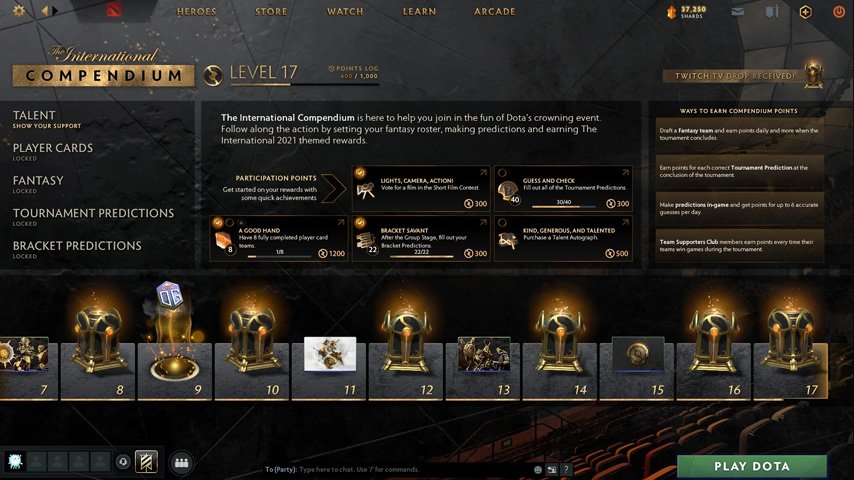Imagine you purchase a 70$ USD live service game. You are excited to try the game out but you realize that the game doesn’t give you all the content and you need to purchase separate bundles and DLCs to get everything that the game has. Sounds unfair? Welcome to modern live. service games.
Key Takeaways
Live service games have become notorious for predatory monetization methods and forcing players to spend extra bucks on the game. Most AAA studios are using these methods to gain some extra profit. But it wasn’t like this from the start.
Where It All Started
During the days of modding becoming more and more famous, Bethesda released a cosmetic item which was horse armor for $2.5. Most players thought of this as stupid and laughed, but they didn’t know that this would become the norm in the future. However, this wasn’t the reason why microtransactions became popular.
Microtransactions became an ideal method for AAA companies to make some extra money when DOTA 2 in 2013 released “The Compendium”. This was the first battle pass and its sole purpose was to make money for their biggest E-Sports event, The International. After this, every game started implementing this system.

Fortnite, Apex Legends, Call of Duty Warzone, and many other AAA studios used this in their live service games. These passes had cosmetic items only. But these passes started making appearances in MMO RPGs like New World, which felt like pay-to-win.
Soon many different types of such tactics were introduced. Like loot boxes which would randomly give an item from the store which was seemingly similar to gambling, Gacha pulls system which provides an item that is supposed to be in store but you get it after after many ‘Gambling’ tries.
Sin Of Greed
If games were assumed to be the 7 Deadly Sins, then no other game can be called the Sin of Greed than Destiny 2. Destiny 2 perfectly summarises everything that’s wrong with the monetization in live service games these days.
Bungie’s Crown Jewel has everything such as Paid Expansions, Pay-to-Win items, Absurd prices for cosmetic items, and additional purchases after purchases for low-quality content. These are still present to this day and keep growing in numbers.
Bungie has been moving a lot of items from default areas of the game to their paid store. A lot of content gets removed to make room for new paid content that players have to pay for every season. Destiny 2 really is the devil when it comes to absurd microtransaction tactics.
Destiny 2 isn’t the only game that is using these evil methods. Many AAA games these days have made battle passes and paid content in the form of DLCs necessary these days. Gone are the days when a game was released complete or when an expansion truly felt like it was adding to an already complete game rather than completing the base game.
Not Just the Companies
Sure the companies are the reason microtransactions exist, but players are also the reason that it’s becoming more and more common. Players seem to get addicted to games and use money to purchase microtransactions. Even if players complain, hate their game, or do not enjoy their time, their addiction always wins.
Let us take Call Of Duty as an example. Every year the fans complain about the game, yet they still buy the game, their cosmetic items and all the battle passes. Instead of boycotting the system they seem to buy it anyway. This leads to companies getting away with these decisions.
Elder Scrolls Online and many MMORPG games have premium subscription fees that make the game more convenient for the players. Instead of complaining about this system, they seem to accept it. Paying for premium services after purchasing the game feels normal these days.

A Light Of Hope
Microtransactions have become normal but there is still hope in the form of games that release with hardly any or absolutely no extra purchase requirements like Elden Ring, Baldurs Gate 3, and Last Epoch. These games with many other indie games that refuse to add microtransactions have made AAA studios look bad.
Many players seem to speak up against these tactics in games and studios have realized it too. I hope a time will come when live service games will feel like a game rather than money-spending software.
Good job! Please give your positive feedback 😏
How could we improve this post? Please Help us. 💡
23-year old seasoned content writer with 5 years of expertise in gaming, tourism, and tech. Committed to VA since 2021, with prior internship experience at AK Broadcasts. Distinguished in English and highly skilled in writing. Enthusiastic gamer favoring Tekken, Apex Legends, and COD. Currently in the final year of BBA, with exceptional HR skills. Check out Reeshail’s Steam and learn more about his gaming expertise.



